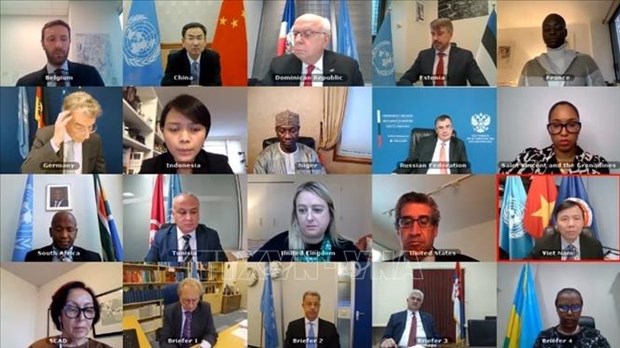Viet Nam joins discussion on UNSC's residual mechanism for criminal tribunals
Viet Nam has emphasised countries’ top responsibility in the prosecution of severe international crimes at a United Nations Security Council (UNSC) briefing on the International Residual Mechanism for Criminal Tribunals (IRMCT) held on 14 December.
 |
| At the event (Photo: VNA) |
Ambassador Dang Dinh Quy, head of the Vietnamese Mission to the UN, said Viet Nam backs the Office of The Prosecutor’s increasing cooperation with and assistance for countries in exercising their jurisdiction.
Also chairman of the UNSC’s Informal Working Group on International Tribunals, Quy acknowledged efforts made by the mechanism in the implementation of the UNSC’s Resolution 2529, which reviews the mechanism’s operation in 2018 and 2019.
He voiced his support for the implementation of effective measures to realise the UNSC’s vision for the IRMCT.
At the briefing, Judge Carmel Agius, President of the IRMCT, said in the past six months, the mechanism achieved significant progress, including the resumption of court hearings at its facility in Arusha, Tanzania and the preparations for Rwandan genocide suspect Felicien Kabuga to be on trial.
Established in 2010, the mechanism is mandated to perform a number of essential functions previously carried out by the International Criminal Tribunal for Rwanda and the International Criminal Tribunal for the former Yugoslavia. The UNSC reviews the operation of the mechanism every six months.
Resolution 2529 on reappointing the prosecutor and reviewing the two-year operation of the IRMCT was adopted by the UNSC in June this year. In its capacity as the Chair of the UNSC’s Informal Working Group on International Tribunals, Viet Nam compiled and chaired the negotiations of the resolution.
Source: VNA